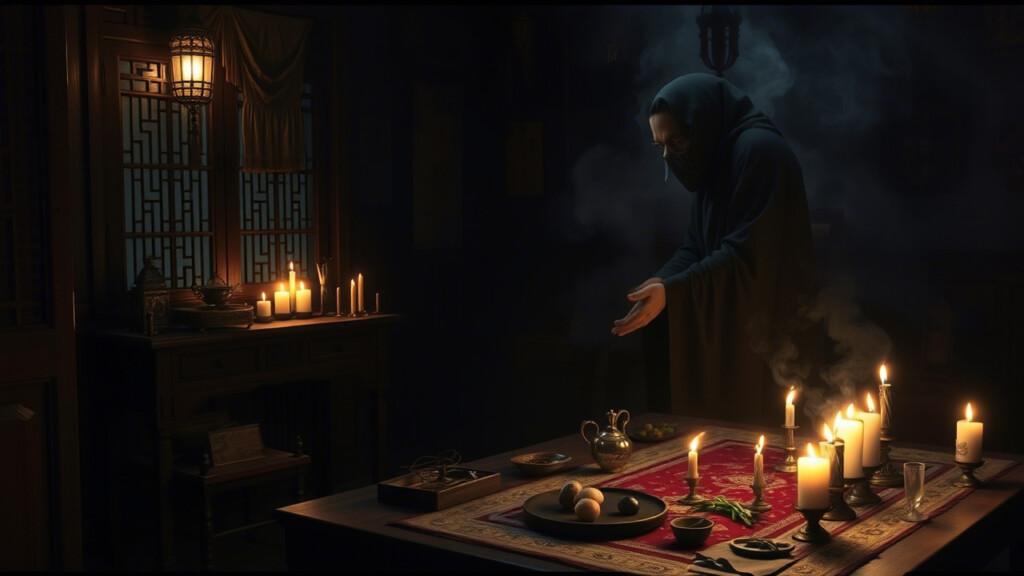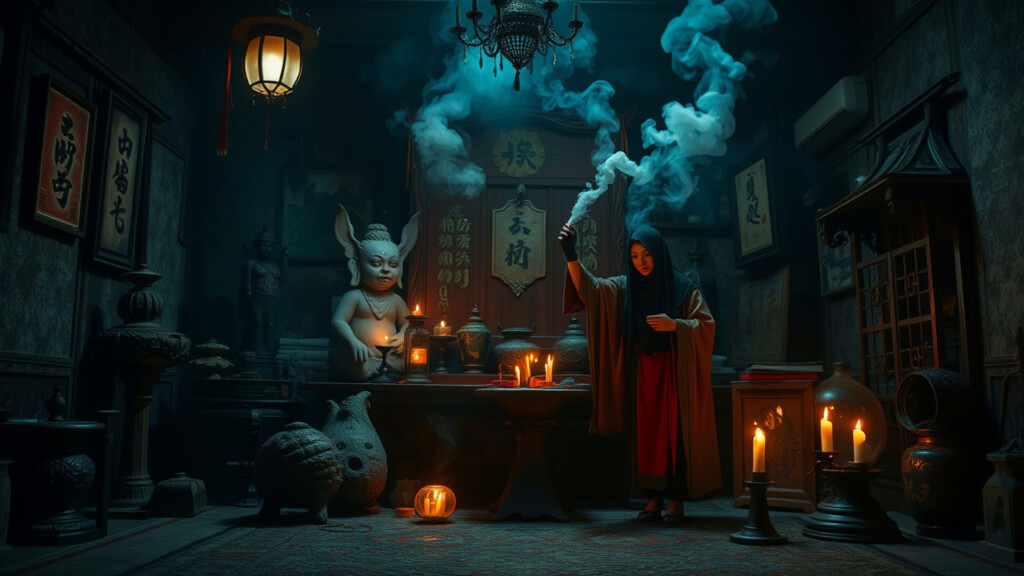Bùa ngải is one of the greatest mysteries in folklore, long rumored to have the power to control minds, bring love, or spread misfortune. Found in various cultures, it is not just a tale passed down through generations but a real source of fear for those who believe in it.

Origins and Existence of Bùa Ngải
In Vietnam, bùa ngải is closely linked to folk legends, particularly in the regions of Tây Bắc (Northwest), Tây Nguyên (Central Highlands), and Nam Bộ (Southern Vietnam). Those known as thầy bùa (sorcerers or witch doctors) are said to use plants, creatures, or mystical rituals to practice their craft. One of the most significant plants used is ngải, an herb that can heal or harm depending on its use.
Popular Types of Bùa Ngải
- Bùa yêu (Love Charm): Makes a person obsessed and dependent on the caster.
- Ngải hại (Cursed Ngải): Causes strange illnesses, drains health, or even leads to death.
- Ngải bảo hộ (Protective Ngải): Shields the user, bringing luck and protection.
How Bùa Ngải Works
According to folklore, bùa ngải derives its power from two main elements: rituals and belief. Those under a spell may seem possessed, acting entirely under the caster’s will. However, if the spell is broken, it can backfire, bringing suffering and torment to the one who cast it—sometimes even leading to their death.
This is similar to Kumanthong (Thailand) and Kodoku (China): if not properly maintained or if exorcised, the magic can turn against its owner.
- Kumanthong: A charm made from the spirit of an unborn child, believed to bring fortune but can become vengeful if abandoned.
- Kodoku: A dark spell created by forcing venomous insects to fight to the death. The survivor becomes a powerful talisman, but if its owner dies, the curse may turn against them.
The similarity between these forms of dark magic highlights a common theme: the stronger the belief, the greater the perceived effects.
Bùa Ngải Stories and Psychological Effects
The Man Under a Love Spell
One of the most famous cases of bùa yêu in Vietnam is the story of Nguyễn Văn T. from the Mekong Delta. He had a happy family and a stable job, but everything changed after a business trip to a remote village. There, he met a strange woman—physically unremarkable, even considered unattractive by many.
After sharing a drink with her, he became infatuated, abandoning his wife and children to live with her in the mountains.
His family, desperate, took him to the best psychiatrists in Hanoi, but he insisted his love was real. No scientific explanation could change his mind.
Out of options, his relatives sought a powerful sorcerer. The sorcerer confirmed he had been placed under a love spell. A counter-ritual was performed, and within days, his mind cleared. He realized what had happened and returned to his family. But from that moment, he never doubted the power of bùa ngải again.

Was this truly the effect of a love spell, or simply the power of suggestion?
In Paranormality: Why We See What Isn’t There (2011), psychologist Richard Wiseman explains that when someone believes they are affected by supernatural forces, their body and mind can manifest symptoms that align with that belief. This is closely related to the nocebo effect—the negative counterpart to the placebo effect.
A study from Harvard University (The Nocebo Effect: Clinical and Research Implications – Barsky et al., 2002) found that patients who were falsely informed about side effects of a medication often developed those exact symptoms, even though they had taken a harmless substance. Similarly, when someone believes they are cursed or under a spell, they might exhibit real psychological or physical symptoms.
Bùa Ngải for Revenge
In a village in Tây Bắc, a man, consumed by hatred, sought a sorcerer to curse his enemy. Months later, the target of his revenge fell mysteriously ill. His body weakened, and no doctor could determine the cause.
But then, something eerie happened—the man who had cast the curse also began showing the same symptoms.
The villagers whispered: “Ngải quay đầu rồi.” (The ngải has turned back.)
In folk belief, “ngải quay đầu” refers to a curse rebounding onto the user. From a psychological perspective, this could be explained by fear and guilt. A strong belief in dark magic can cause physical reactions, making any unusual health issue feel like supernatural retribution.
Is Bùa Ngải Real?
Stories like these have been passed down for generations, making bùa ngải an inseparable part of folk beliefs. As modern society progresses and collective awareness shifts, tales of bùa ngải have become less common. Whether it is real or not—perhaps only those who have experienced it can truly know.
